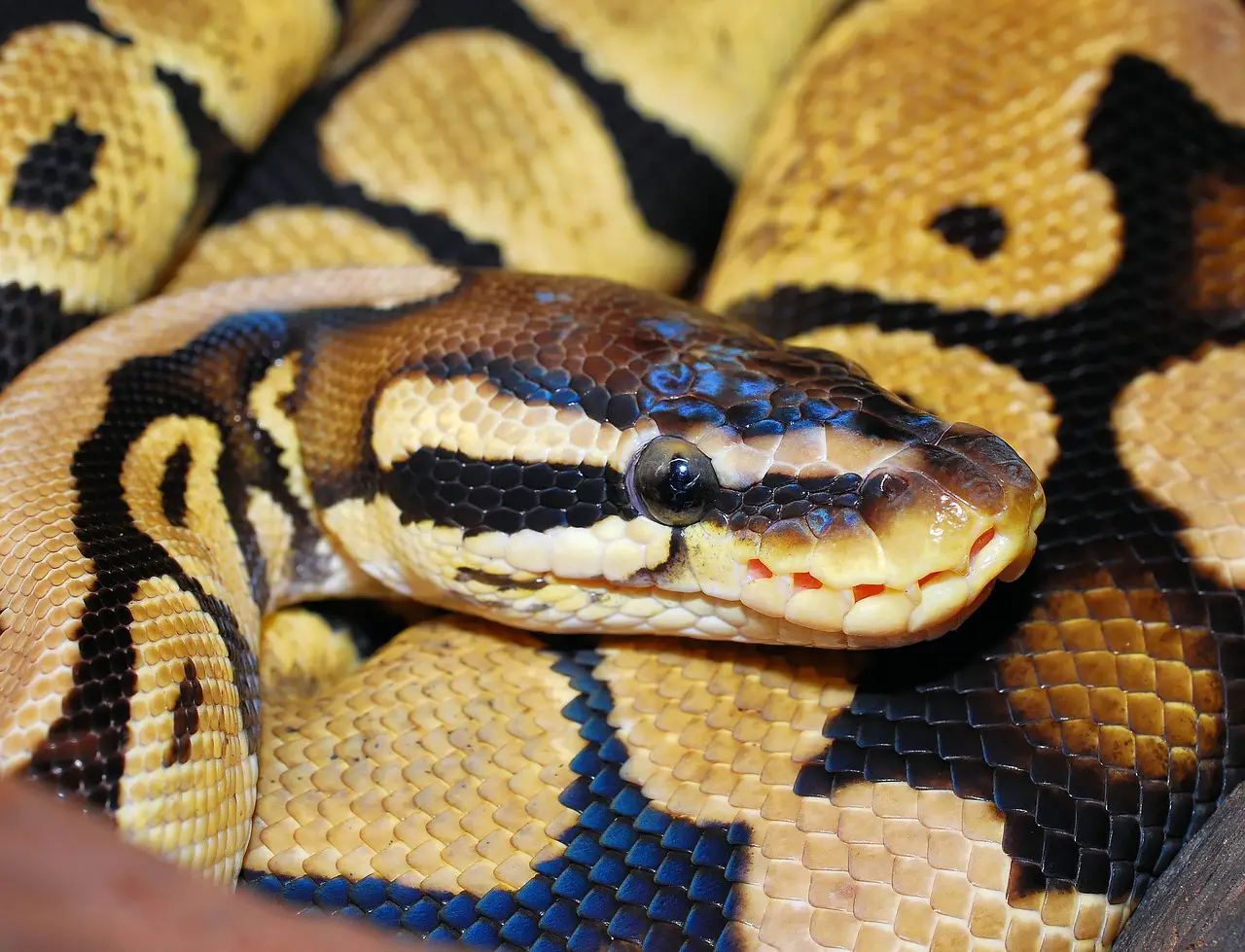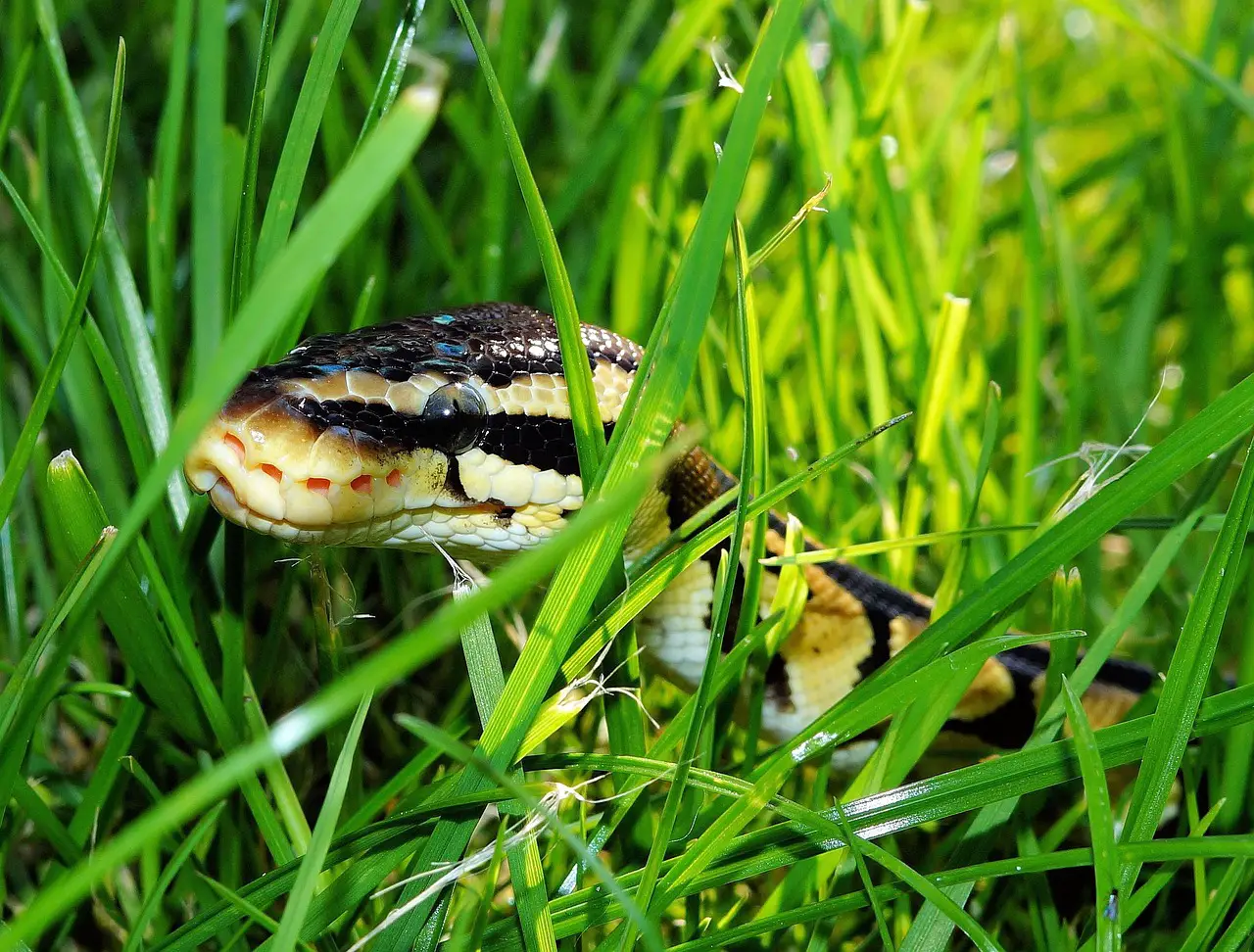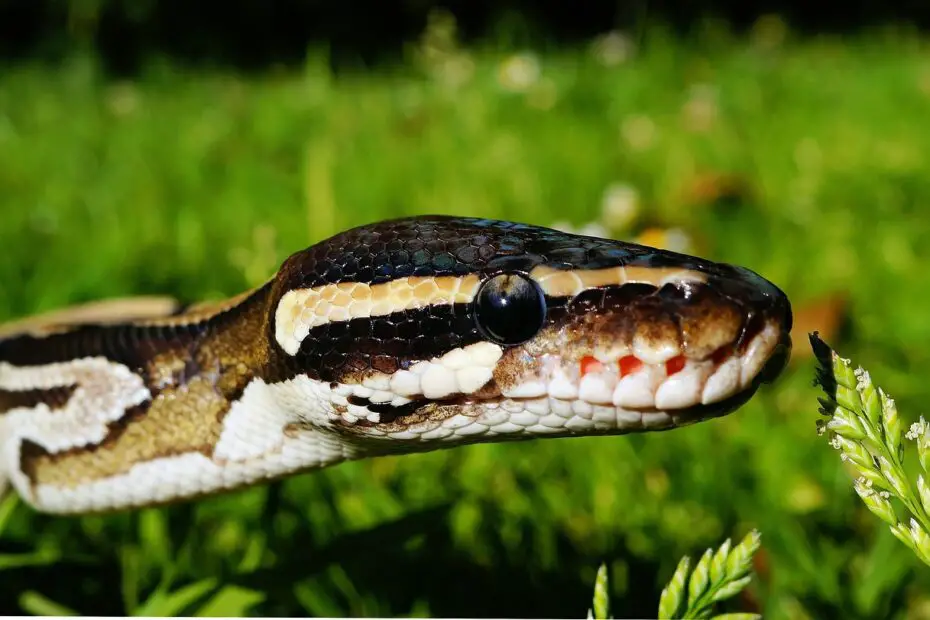Ball pythons are fascinating creatures that have become increasingly popular as pets. However, concerns about their potential danger may deter some individuals from considering them as companions.
Are Ball Pythons Dangerous? In this article, we will delve into the nature of ball pythons, debunk common misconceptions, and provide a comprehensive understanding of whether or not ball pythons are dangerous. By addressing these concerns and exploring their behavior and care requirements, we aim to help you make an informed decision about welcoming a ball python into your life.
You may also want to know if ball pythons bite.
Understanding Ball Pythons
Before delving into the question of their danger, let’s first understand what ball pythons are and their basic characteristics.
Ball pythons, scientifically known as Python regius, are non-venomous constrictor snakes native to sub-Saharan Africa. They are known for their beautiful patterns and docile nature, making them highly sought after as pets. With a typical adult length of 3 to 5 feet, ball pythons are relatively small compared to other python species.
These snakes received their name from their defensive behavior of curling into a tight ball when threatened, protecting their head within the coils of their body. This unique defensive posture is where the name “ball python” originated.

Are Ball Pythons Dangerous?
Are Ball Pythons Dangerous? When it comes to assessing the danger associated with ball pythons, it’s important to dispel some common misconceptions and examine their nature objectively.
Lack of Venom
One of the key factors that sets ball pythons apart from venomous snakes is their lack of venom. Ball pythons are constrictors, relying on their muscular bodies to subdue and overpower their prey. Their feeding strategy involves coiling around their prey, exerting pressure to restrict blood flow and ultimately suffocate it. While their bite may be uncomfortable, it does not inject venom or pose any venomous threat.
Rare Cases of Aggression
Ball pythons have gained a reputation for their docile nature, making them suitable pets for snake enthusiasts of all experience levels. While there are rare cases of individual ball pythons displaying aggression, these instances are typically the result of stress, improper handling, or health issues. With proper care, handling, and a stress-free environment, the likelihood of encountering an aggressive ball python is minimal.
Proper Handling and Care
To ensure a positive experience with a ball python and minimize any potential risks, it’s crucial to prioritize proper handling and care. Ball pythons should be approached calmly and handled with confidence, supporting their body and avoiding any sudden movements that may startle them. Beginners are advised to seek guidance from experienced snake owners or herpetologists when handling ball pythons for the first time.
Maintaining a suitable habitat with appropriate temperature and humidity levels is essential for the overall well-being of ball pythons. By providing a secure enclosure with proper hiding spots, adequate substrate, and regular feeding schedules, you can minimize stress and create an environment where your ball python feels safe and comfortable.
Safety Measures for Ball Python Ownership
While ball pythons are generally not dangerous, it’s important to take some safety measures when owning them.
Secure Enclosures
Ball pythons are known for their ability to escape enclosures, especially when they are not securely sealed. Ensure that your enclosure has a locking mechanism in place and regularly inspect it for any potential weak points. This will prevent any accidental escapes and keep your snake safe within its designated habitat.

Supervised Handling for Beginners
For individuals new to snake ownership, it is advisable to handle ball pythons under supervision until they become more familiar with their behavior and body language. This reduces the risk of accidents and helps both the snake and the owner feel more comfortable during handling sessions.
Knowing Warning Signs of Stress or Discomfort
Understanding the body language and behavior of your ball python is crucial in ensuring their well-being and safety. Signs of stress or discomfort may include hissing, defensive postures, or repeated attempts to escape. Recognizing these signals allows you to adjust the handling or environmental conditions to minimize stress and ensure a positive interaction.
Benefits of Owning Ball Pythons
While the question of danger is important, it’s equally essential to consider the benefits that ball pythons can bring as pets.
Low-Maintenance Pets
Ball pythons are known for their low-maintenance requirements compared to other pets. They do not require daily walks, constant attention, or elaborate grooming routines. With the right habitat setup and a suitable feeding schedule, ball pythons can thrive with minimal effort.
Educational Value
Owning a ball python can be an educational experience, particularly for children. Observing their natural behaviors, learning about their habitat requirements, and understanding their role in the ecosystem can foster a sense of curiosity and appreciation for the natural world.
Therapeutic Benefits
Snakes, including ball pythons, have been known to provide therapeutic benefits to some individuals. Their calm demeanor and rhythmic movements can have a soothing effect, reducing stress and promoting relaxation. For those who find solace in observing nature, owning a ball python can offer a unique form of therapy.
Overcoming Fear and Misconceptions
Fear and misconceptions often arise due to lack of knowledge and exposure to these incredible reptiles. By dispelling common myths and educating oneself about ball pythons, it is possible to overcome apprehension and develop a greater understanding and appreciation for these captivating creatures.
Educational resources, reputable breeders, and local reptile organizations can provide valuable information and support to help individuals gain confidence and a deeper understanding of ball pythons.
Conclusion
Are Ball Pythons Dangerous? Ball pythons, despite their striking appearance, are not inherently dangerous animals. They lack venom, and instances of aggression are rare, often resulting from external factors. By providing proper care, handling them with confidence, and creating a stress-free environment, owning a ball python can be a rewarding and safe experience.
If you have the passion and dedication to learn about these fascinating creatures, a ball python can be an enchanting addition to your life. Remember to prioritize their well-being, respect their nature, and seek guidance from experienced snake owners or herpetologists. With the right approach, you can forge a rewarding bond with a ball python that will bring joy and wonder into your everyday life.
FAQs
Q: Are ball pythons dangerous to children? A: When properly handled and supervised, ball pythons pose no significant danger to children. However, responsible adult supervision is always recommended when children interact with any pet snake.
Q: Can ball pythons cause harm with their bites? A: While ball pythons have sharp teeth, their bites are typically not harmful to humans. They may cause minor scratches or punctures, similar to a cat scratch, but serious injuries are rare.
Q: Do ball pythons attack humans unprovoked? A: No, ball pythons do not attack humans unprovoked. They are generally docile and prefer to retreat or hide when they feel threatened or uncomfortable.
Q: Are ball pythons more dangerous than other snakes? A: Ball pythons are not considered more dangerous than other snakes. Their docile nature and lack of venom make them suitable for beginners and snake enthusiasts alike.
Q: What precautions should I take when handling a ball python? A: When handling a ball python, ensure a calm and quiet environment, support their body properly, and avoid sudden movements. Regularly wash your hands before and after handling to maintain hygiene.
